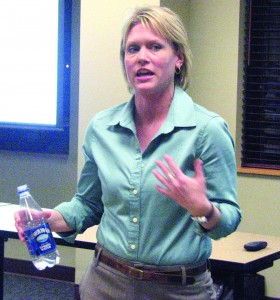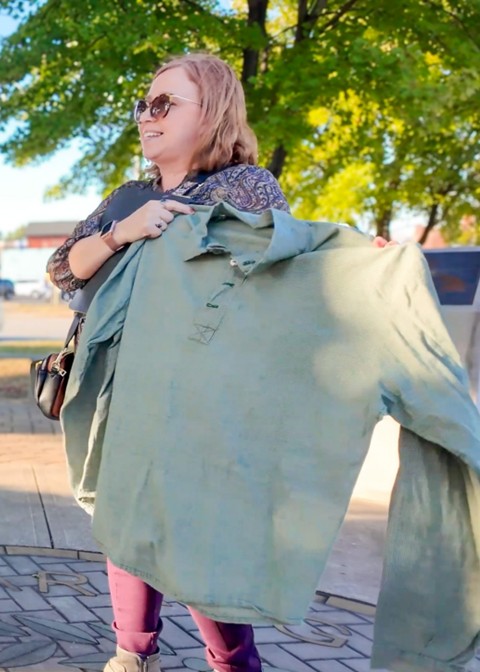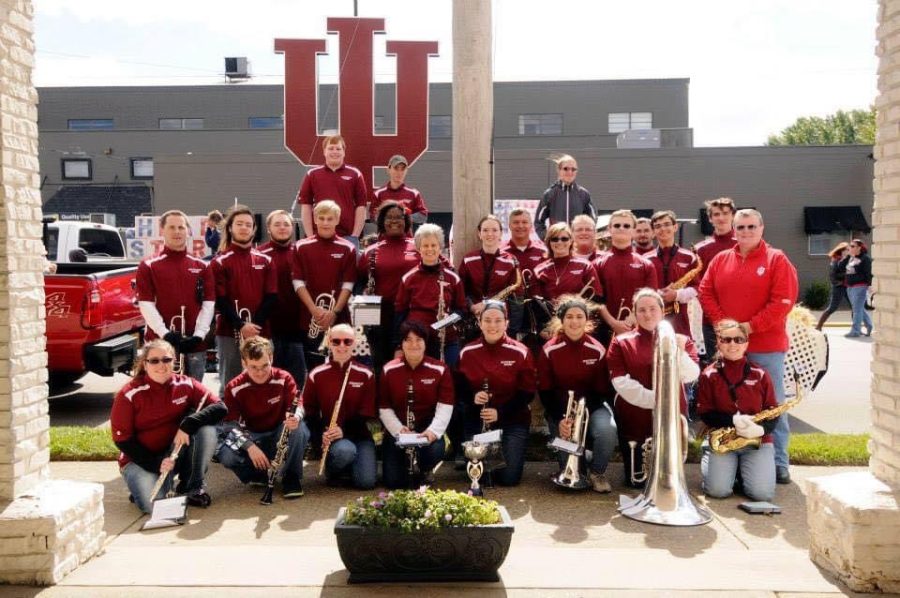
Stacey Lannert, ex-convict, said she does not want people to feel sorry for her.
Lannert gave an inspirational speech at IU Southeast on March 6 informing students of the sexual abuse she experienced during her childhood, which led her to shooting and killing her father.
Lannert said one in four women is a victim of domestic violence or sexual abuse.
There are 39 million Americans who are victims of sexual and physical abuse, and these are only reported cases.
Lannert spoke of the importance of reporting abuse and helping individuals who are in abusive situations.
When Lannert was 8 years old, her father began abusing her. At age 12, Lannert told herself it was too late to get help.
“I remember thinking ‘I cannot tell anyone now because I have allowed it to happen for so long,’” Lannert said. “I felt ashamed.”
Lannert told her babysitter of the abuse taking place in her household. Her babysitter informed her mother, who eventually divorced her father and moved away to Guam.
“We were middle-class people,” Lannert said. “This doesn’t happen to middle-class people. Middle-class men don’t abuse their daughters, only a set low income or those kids, it didn’t happen to people like me.”
With no one to turn to, Lannert felt alone. She called child hotlines a couple of times but hung up.
“I thought it was just violence against children, and I didn’t realize that it was for sexual abuse, too,” Lannert said.
When she turned to people who she trusted, they brushed her off.
“At 17, I told my guidance counselor and my uncle,” Lannert said.
As a result of her abuse and neglect by people who she trusted, Lannert began shoplifting and engaged in promiscuous acts. In a two year period, Lannert had about 18 sexual partners.
“I don’t know how to be with someone,” Lannert said.
She found it difficult to relate to others since she was trying to protect her secret. Lannert also attempted suicide three times.
On her 18th birthday, Lannert went away for the weekend with some friends. On Monday, she came home with a puppy, and her father accused her of staying with a man.
“I told him, ‘I am 18 now. You can’t touch me,’” Lannert said, “and he raped me more violently and beat me for the first time, to the point where I passed out.”
When Lannert woke up, her father threatened her with a knife and cut her hair off.
“I felt more fear in that moment,” Lannert said.
On July 4, Lannert was told by her father to give up her dog.
“I said ‘Fine, I’ll get rid of the dog, but I am going, too, and I’m taking [my sister],’” Lannert said. “He said ‘No, she stays, she’s your replacement.’”
Her father raped her sister for the first time. That same night, Lannert killed her father.
“I shot him once in the shoulder,” Lannert said. “He had been passed out drunk, and he sat up and called my name,” Lannert said. “He was so drunk he didn’t realize he was shot. He thought he had broken his collar bone, and I immediately felt remorse.”
Lannert left her house to look for help.
“The more time passed without him getting help, he became angrier,” Lannert said. “He started threatening us and screaming and yelling and calling me all kinds of names.”
Out of fear, Lannert shot him a second time and killed him. She was charged with first-degree murder for cruel deliberation.
The prosecutor offered her a life sentence if she expressed her motive for the killing as monetary gain, but Lannert could not do it.
“I would betray myself so I could eventually have freedom,” Lannert said. “I couldn’t do that.”
She was found guilty for first-degree murder without the possibility of parole.
“I was going to be in there forever, unless this man, Gov. Mel Carnahan, granted me clemency,” Lannert said.
Eight years into her sentence, Carnahan contacted her public defender.
“As soon as this race with John Ashcroft — the Senate race — is over with I am going to grant this girl clemency,” Carnahan said.
Carnahan’s promise was never upheld since he died in a plane crash two months before the race ended.
The next governor told Lannert she needed to draw media attention. Lannert began working with dogs while in prison. She also participated in a program called Outreach, which educates young children about abuse.
A freelance reporter for Glamour magazine profiled Lannert while she was in jail. At first, Lannert was hesitant to be interviewed out of fear of being judged.
Lannert’s story drew media attention and 10,000 individuals signed a petition asking for her release.
On Jan. 10, 2009, Judge Steven H. Goldman granted Lannert clemency. Six days later, Lannert was a free woman.
Today, Lannert studies pre-law and works with numerous individuals and programs for individuals against abuse. Heather Hawkins, nursing freshman, said she was inspired by Lannert’s speech.
“I liked how she said at the end ‘You don’t have to be a victim, be a victor,’” Hawkins said.
Larry Finch, business freshman, said he thought Lannert’s speech was eye-opening.
“It’s never the victims’ fault,” Finch said.
Capricia Grady, criminal justice freshman, said she never would have thought Lannert looked like a woman who served time in jail.
“You wouldn’t think she was abused,” Grady said. “It was very sad.”
By ANA-MARIJA DRINOVAC
Staff
adrinova@umail.iu.edu






